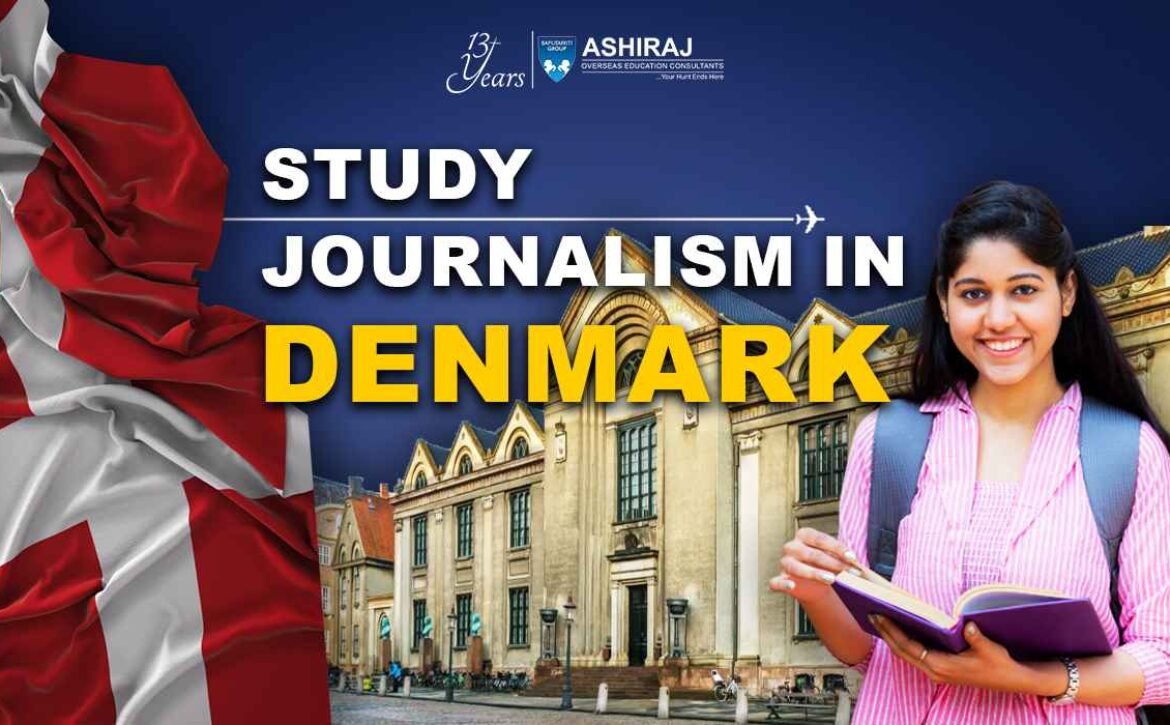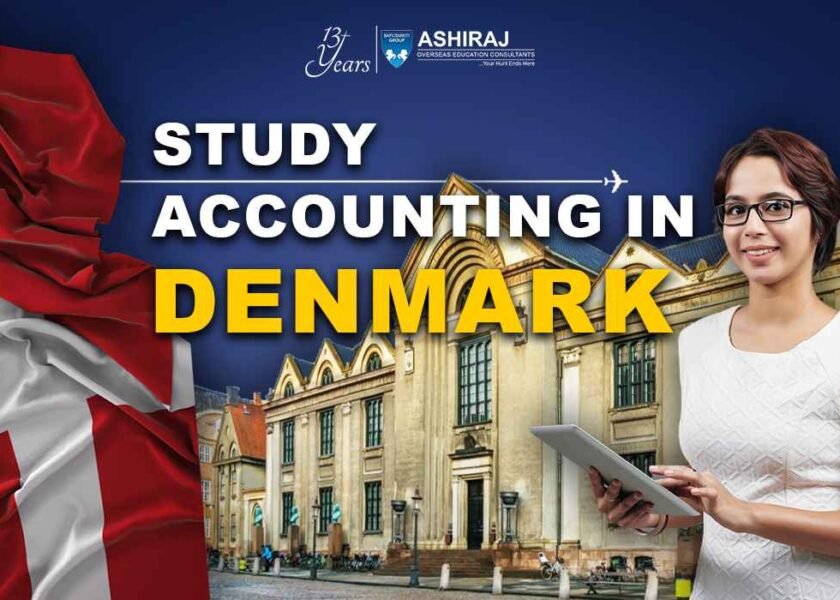
Journalism in Denmark
Journalism in DENMARK encompasses a rich tradition of integrity, innovation, and social responsibility. In the Danish media landscape, journalistic ethics are highly valued, reflecting a commitment to truthfulness and objectivity. From established newspapers to digital platforms, Danish journalists strive to uphold high standards of accuracy and impartiality, fostering an informed citizenry in a democratic society. The Danish press operates in a climate of press freedom, ranking consistently high in global press freedom indices, which underscores the country’s dedication to an open and transparent media environment.
Within DENMARK, journalism plays a pivotal role in shaping public discourse and holding power to account. With a keen focus on investigative reporting and in-depth analysis, Danish journalists tackle a wide array of issues, from politics and economics to culture and environmental sustainability. This dedication to comprehensive coverage ensures that citizens are well-informed and empowered to participate actively in civic life. In a digital age marked by rapid technological advancements and shifting media consumption habits, journalism in DENMARK continues to evolve, embracing multimedia storytelling and audience engagement strategies while staying true to its core principles of integrity and public service.
Why to Study Journalism in Denmark?
- Rich Tradition: Denmark boasts a longstanding tradition of journalistic excellence, with a history rooted in integrity and social responsibility. Studying journalism here offers a unique opportunity to immerse oneself in a culture that values truthfulness and objectivity.
- High Standards: Danish journalism upholds rigorous ethical standards, emphasizing accuracy and impartiality. Students can learn from professionals dedicated to maintaining the highest levels of integrity in their reporting.
- Press Freedom: Denmark consistently ranks among the top countries for press freedom, providing an environment conducive to investigative journalism and free expression. Studying in such a climate allows students to understand the importance of a free press in a democratic society.
- Global Perspective: Denmark’s multicultural society offers students exposure to diverse viewpoints and issues, preparing them for careers in a globalized media landscape.
- Innovation: Danish journalism embraces technological advancements and multimedia storytelling, equipping students with the skills to adapt to evolving industry trends.
- Networking Opportunities: Studying journalism in Denmark provides access to a network of professionals and media organizations, facilitating internships and career opportunities both domestically and internationally.
- Civic Engagement: By studying journalism in Denmark, students become part of a community dedicated to fostering informed citizenship and holding power to account, contributing to a vibrant and democratic society.
In conclusion, studying journalism in DENMARK offers a blend of tradition, innovation, and opportunity, making it an ideal choice for aspiring journalists seeking a comprehensive education in the field.
Top Universities to Study Journalism in Denmark
University | QS World University Ranking 2023 | Type of University | Average Annual Fees | Programs Offered |
University of Copenhagen | 35 | Public | $10,000 – $15,000 | Bachelor’s in Journalism, Master’s in Journalism |
Aarhus University | 65 | Public | $9,000 – $13,000 | Bachelor’s in Media Studies, Master’s in Journalism |
Roskilde University | 201-250 | Public | $8,000 – $11,000 | Bachelor’s in Journalism and Communication, Master’s in Journalism |
Aalborg University | 251-300 | Public | $7,000 – $10,000 | Bachelor’s in Media Science, Master’s in Journalism |
Copenhagen Business School | 301-350 | Private | $12,000 – $17,000 | Bachelor’s in Business Journalism, Master’s in Journalism |
Studying journalism in DENMARK is enriched by the presence of several top-ranking universities offering comprehensive programs tailored to meet the demands of the rapidly evolving media landscape. The University of Copenhagen, ranked 35th in the QS World University Rankings 2023, stands out for its esteemed Bachelor’s and Master’s programs in Journalism, providing students with a solid foundation in journalistic principles and practices. Aarhus University, ranked 65th, offers a diverse range of programs including Bachelor’s in Media Studies and Master’s in Journalism, fostering critical thinking and creative storytelling skills. Roskilde University and Aalborg University, ranked within the top 300, provide affordable options for aspiring journalists with Bachelor’s and Master’s programs focusing on journalism and communication. Additionally, Copenhagen Business School, a private institution ranked between 301-350, offers specialized programs like Business Journalism, catering to the intersection of journalism and commerce. These universities collectively contribute to the vibrant landscape of Journalism in DENMARK, preparing students for impactful careers in the media industry.
Course Curriculum for Journalism in Denmark
- Multimedia Skills: The journalism curriculum in DENMARK emphasizes multimedia storytelling, equipping students with the technical skills needed for digital journalism, including video production, podcasting, and data visualization.
- Ethical Framework: Central to the course curriculum is an in-depth exploration of journalistic ethics, emphasizing principles of accuracy, fairness, and accountability. Students examine case studies and engage in discussions to develop a strong ethical foundation for their reporting.
- Global Perspective: With a focus on global issues and perspectives, the curriculum encourages students to analyze and report on international events, fostering a broader understanding of the interconnectedness of the world.
- Investigative Journalism: Courses on investigative journalism empower students to uncover stories of public interest, teaching them research techniques, source verification, and investigative reporting methods.
- Practical Experience: Journalism programs in DENMARK prioritize hands-on experience through internships, workshops, and projects, allowing students to apply theoretical knowledge in real-world settings and build professional portfolios.
- Collaborative Learning: Collaborative projects and team-based assignments are integrated into the curriculum, promoting teamwork, communication skills, and the ability to work effectively in diverse environments.
- Adaptability: Recognizing the evolving nature of the media industry, the curriculum emphasizes adaptability and innovation, preparing students to navigate technological advancements and changing audience preferences.
- Cultural Competence: Courses on cultural competency ensure that students are equipped to report sensitively and accurately on diverse communities, reflecting the inclusive nature of Journalism in DENMARK.
Eligibility Criteria & Admission Requirements for MS in Journalism in Denmark
- Language Proficiency: Applicants must demonstrate proficiency in English through standardized tests such as IELTS or TOEFL. The minimum scores required for IELTS are 7.0 overall, with no band less than 6.5, while for TOEFL, a minimum score of 90 is typically required.
- Academic Qualifications: Prospective students should hold a bachelor’s degree or its equivalent from a recognized institution. Academic transcripts and certificates demonstrating the completion of undergraduate studies are required for admission.
- Standardized Tests: Some universities may require applicants to submit scores from standardized tests such as GRE or GMAT. While GRE scores are not mandatory for journalism programs, a competitive score is typically around 155 for Verbal Reasoning and 4.0 for Analytical Writing. For GMAT, a score above 600 is considered competitive.
- Passport & Student Visa: International students must possess a valid passport and obtain a student visa to study in DENMARK. The visa application process may vary depending on the student’s country of origin and the duration of the intended stay.
- Work Experience: While not always mandatory, relevant work experience in journalism or related fields may strengthen an applicant’s candidacy. Applicants are encouraged to highlight any relevant professional experience in their application materials.
Test | Minimum Score |
IELTS | Overall 7.0 |
TOEFL | 90 |
GRE | Verbal: 155, Analytical Writing: 4.0 |
GMAT | Above 600 |
Ensuring compliance with these eligibility criteria is essential for prospective students aspiring to pursue journalism in DENMARK. Adhering to these requirements increases the likelihood of a successful application and admission to reputable journalism programs in the country.
Documents Required for Studying Journalism in Denmark
- Passport: A valid passport is essential for international students applying to journalism programs in DENMARK. Ensure that your passport is valid for the duration of your intended stay in the country.
- Letters of Recommendation (LOR): Typically, two letters of recommendation from academic or professional references are required. These letters should attest to your academic abilities, work ethic, and suitability for the program.
- Statement of Purpose (SOP): The SOP is a personal statement outlining your academic and professional background, career goals, and reasons for choosing to study journalism in DENMARK. It provides admissions committees with insight into your motivations and aspirations.
- Curriculum Vitae (CV): A comprehensive CV detailing your educational background, work experience, internships, publications, and relevant skills is necessary for the application process.
- Official High School Transcripts and Educational Certificates: Transcripts and certificates from your high school or secondary education institution are required to demonstrate your academic qualifications.
- Work Experience Certificate: If applicable, a work experience certificate from previous employers may be required to validate any relevant professional experience you have in the field of journalism or related industries.
- Proof of Financial Resources: As an international student, you must provide evidence of sufficient financial resources to cover tuition fees, living expenses, and other related costs during your studies in DENMARK. This may include bank statements, scholarship awards, or sponsorship letters.
Ensuring that you have all the necessary documents ready and in order is crucial for a smooth application process for journalism programs in DENMARK. Adhering to these requirements demonstrates your preparedness and commitment to pursuing higher education in the field of Journalism in DENMARK.
Admission Process for Journalism in Denmark
- Research Programs: Begin by researching journalism programs offered by universities in DENMARK. Consider factors such as curriculum, faculty expertise, and university reputation to find the program that best aligns with your academic and career goals.
- Check Eligibility: Review the eligibility criteria for your chosen programs, ensuring that you meet the requirements regarding academic qualifications, language proficiency (IELTS or TOEFL scores), and any standardized tests (GRE or GMAT) if required.
- Prepare Documents: Gather the necessary documents for your application, including transcripts, certificates, letters of recommendation (LOR), statement of purpose (SOP), curriculum vitae (CV), passport, and proof of financial resources.
- Submit Application: Complete the online application form provided by your chosen university, and upload all required documents. Ensure that you double-check the application deadlines and submit your application well in advance.
- Wait for Decision: After submitting your application, wait for the university to review your materials. Admissions committees typically evaluate applications based on academic credentials, personal statement, letters of recommendation, and relevant experience.
- Interview (if required): Some universities may require an interview as part of the admissions process. Prepare for the interview by researching the program and articulating your motivations for pursuing journalism in DENMARK.
- Receive Admission Offer: If your application is successful, you will receive an admission offer from the university. Review the offer letter carefully and follow the instructions provided to accept the offer and secure your place in the program.
Navigating the admission process for journalism programs in DENMARK requires careful planning, attention to detail, and thorough preparation. By following these steps diligently, you can increase your chances of securing admission to a reputable journalism program and embarking on your academic journey in Journalism in DENMARK.
“Education is the most powerful weapon which you can use to change the world.”
Nelson Mandela
Cost of Journalism Course in Denmark
- Tuition Fees: Tuition fees for journalism programs in DENMARK vary depending on the university and the level of study (Bachelor’s, Master’s, or PhD). On average, international students can expect to pay between $8,000 to $15,000 per year for tuition.
- Living Expenses: In addition to tuition fees, students should budget for living expenses, including accommodation, food, transportation, and personal expenses. Living costs in DENMARK are relatively high, with accommodation being the largest expense.
- Scholarship Opportunities: Some universities in DENMARK offer scholarships and financial aid programs for international students, which can help offset the cost of tuition and living expenses. These scholarships may be merit-based, need-based, or awarded based on specific criteria.
- Part-Time Work: International students are permitted to work part-time while studying in DENMARK, which can help supplement their income and cover living expenses. However, it’s important to balance work commitments with academic responsibilities.
- Health Insurance: All students in DENMARK are required to have health insurance, either through a private provider or the national healthcare system. The cost of health insurance varies depending on the coverage provided.
Understanding the cost of studying journalism in DENMARK is essential for prospective students planning their academic journey. By budgeting wisely and exploring scholarship opportunities, students can manage the financial aspects of pursuing Journalism in DENMARK while focusing on their academic and professional development.
Scholarships for Journalism Courses in Denmark
Scholarship Name | Amount | Application Deadline |
Danish Government Scholarships | Full tuition fees, monthly stipend | Varies (typically in early spring) |
Danish State Educational Support (SU) | Up to DKK 6,390 per month | Rolling basis, apply at least 2 months before studies begin |
University-specific Scholarships | Varies (partial or full tuition fees) | Varies by university, usually between December and March |
Erasmus+ Scholarships | Varies (covers travel and living expenses) | Varies by institution, check with Erasmus+ office |
Denmark’s International Merit Scholarships | Varies (partial tuition fee waivers) | Varies by university, usually between December and March |
Securing scholarships can significantly alleviate the financial burden of studying journalism in DENMARK. The Danish Government Scholarships offer full tuition coverage and a monthly stipend, with applications typically due in early spring. Additionally, the Danish State Educational Support (SU) provides financial assistance to cover living expenses. University-specific scholarships are available, offering partial or full tuition fee waivers, with application deadlines varying by institution. Erasmus+ Scholarships cover travel and living expenses for students studying abroad, while Denmark’s International Merit Scholarships offer partial tuition fee waivers. As application deadlines and eligibility criteria may vary, prospective students are encouraged to research and apply for scholarships well in advance to pursue their dreams of studying Journalism in DENMARK.
Career Opportunities After Journalism in Denmark
Job Profile | Average Salary (per year) |
Journalist | $45,000 – $65,000 |
News Reporter | $40,000 – $55,000 |
Editor | $50,000 – $70,000 |
Multimedia Journalist | $45,000 – $60,000 |
Digital Content Producer | $45,000 – $65,000 |
Journalism in DENMARK offers a diverse range of career opportunities for graduates, with roles spanning traditional print media to digital platforms. Journalists play a crucial role in gathering and disseminating news and information, with an average salary ranging from $45,000 to $65,000 per year. News reporters are responsible for investigating and reporting on current events, earning an average salary of $40,000 to $55,000 annually. Editors oversee the content and quality of news publications, earning between $50,000 to $70,000 per year. Multimedia journalists utilize various mediums, including video, audio, and written content, with an average salary ranging from $45,000 to $60,000 annually. Digital content producers create engaging online content for digital platforms, earning an average salary of $45,000 to $65,000 per year. With a dynamic media landscape and competitive salaries, pursuing a career in Journalism in DENMARK offers exciting prospects for aspiring journalists.
Frequently Asked Questions About Journalism in Denmark
Most journalism programs in DENMARK require proficiency in English, demonstrated through tests like IELTS or TOEFL.
Yes, various scholarships are available, including those offered by the Danish government, universities, and organizations like Erasmus+.
Tuition fees vary but typically range from $8,000 to $15,000 per year for international students.
Yes, many journalism programs in DENMARK incorporate internships or work placements to provide practical experience.
Graduates can pursue careers as journalists, news reporters, editors, multimedia journalists, and digital content producers.
Yes, international students are permitted to work part-time during their studies in DENMARK.
Admission can be competitive, with factors such as academic performance, language proficiency, and relevant experience considered.
Bachelor’s programs typically last three years, while Master’s programs can range from one to two years.
Yes, many programs emphasize multimedia storytelling techniques, including video production, podcasting, and data visualization.
International students must apply for a student visa through the Danish consulate or embassy in their home country, providing proof of acceptance to a Danish university, financial resources, and other required documents.




